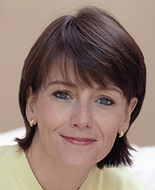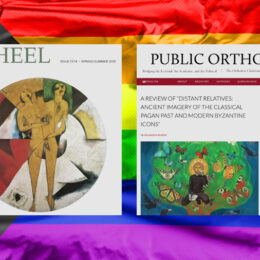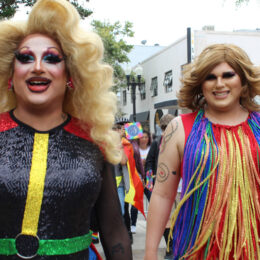
Do you ever wonder what the world will be like in 20 or 30 years? If you’re a parent or a grandparent, chances are you’ve thought a lot about the world the next generation will inhabit. And if you’re a Christian, no doubt you’ve wondered if Christian values will be part of the mainstream culture, or whether such values will even be tolerated.
Mary Beth Hicks, in her new book, Don’t Let the Kids Drink the Kool-Aid, makes a good case for those concerns, some of which I wrote about in my last column.
Take the issue of homosexuality. Traditional Judeo-Christian beliefs teach that the practice of homosexuality is wrong. But gay activists and their liberal supporters have done a stunning job of shifting public opinion against those tenets. They’ve even invented a word for it: homophobia. We’ve reached the point where bringing morality into a discussion of homosexuality is considered hateful.
“In no area has the radical Left made greater inroads into the values and beliefs of America’s youth than in gaining widespread acceptance of homosexuality,” Hicks writes. “Should the trend of the past twenty years continue into the next generation, our grandchildren absolutely will accept homosexuality as a natural and normal form of sexual expression without any moral or even religious reservations.”
If you have any doubts about how quickly and easily it’s possible to shift public opinion, consider the study Hicks cites on this issue. In 2009, the Girl Scout Research Institute, working with Harris Interactive, surveyed approximately 3,000 young people on a variety of topics. The survey was intended for comparison with one conducted in 1989, with virtually identical questions. The largest shift in attitude was on the subject of homosexuality. In 1989, 31 percent of the young people surveyed agreed that “gay and lesbian relationships are okay, if that is a person’s choice.” Twenty years later, 59 percent agreed.
Hicks sums it up this way: “Despite the moral teachings of our religious heritage, it is now considered bigoted to believe that sexual intimacy is not an entitlement for everyone …. The purpose of coupling isn’t to create stability for the individuals or the community, but to satisfy the urges and desires of those in the relationship.”
Another major shift affecting the daily lives of school-aged children has occurred within the education establishment. The philosophy of teaching — the very definition of teaching — has changed, at least among many educators. In a survey commissioned by the American Enterprise Institute, history teachers reported that, as Hicks puts it, “it is more important … that students learn to celebrate the diversity among the different ethnic, religious, and immigrant groups living in the U.S.A. than to know the common history that defines our past.”
Hicks pulls no punches when she describes what she believes is behind that multicultural movement: a disdain for the concept of American exceptionalism. “[T]he multicultural movement, especially as presented in our educational institutions, isn’t really about fostering greater respect among people of different racial and ethnic backgrounds. It’s about building the self-esteem of certain ethnic groups while shaming those who have the audacity to prefer a distinct American culture.”
As if that weren’t bad enough, 37 percent of public and private school history teachers said it was “absolutely essential” to teach students to become political activists. But only one in six believes it’s essential to teach concepts such as federalism, the separation of powers, or checks and balances in government. Who cares whether young people understand our system of government? Let’s just be sure they grow up to be “activists.” (Actually, maybe that explains the “anti-greed, anti-Wall Street” protests going on at the moment. They don’t really know what they’re protesting, but don’t accuse them of not being activists!)
A Rasmussen poll conducted in 2010 revealed that 60 percent of Americans with children enrolled in elementary or secondary school believe “most school textbooks are more concerned with presenting information in a politically correct manner than in accuracy.”
Parents are waking up to the problem, and in some cases, so are legislators. In Arizona, the former state school superintendent, now attorney general, spearheaded a law to ban ethnic studies classes. Not unexpectedly, it was decried by the left as radical and racist. Yet here’s how some of the commonsense law reads:
“A school district or charter school in this state shall not include in its program of instruction any courses or classes that include any of the following:
1. Promote the overthrow of the United States government.
2. Promote resentment toward a race or class of people.
3. Are designed primarily for pupils of a particular ethnic group.
4. Advocate ethnic solidarity instead of the treatment of pupils of individuals.”
And in Utah, legislation passed in March of this year mandates that students “undergo ‘thorough study’ of our founding documents, our national motto, and the Pledge of Allegiance.”
A worldview that’s antithetical to traditional Judeo-Christian teachings and American exceptionalism is being served up on television, in movies, in popular music, on the Internet and in schools. Fight back for the sake of your own kids, and the others who’ll make up the next generation. Sign up to receive alerts from OneMillionMoms about outrages in the media, and let your voice be heard. Monitor your school system’s curriculum, read textbooks, and attend Board of Education meetings. Don’t be afraid to be the first one to speak up. There’s probably a host of other parents waiting to follow your lead.
HT: OneNewsNow



